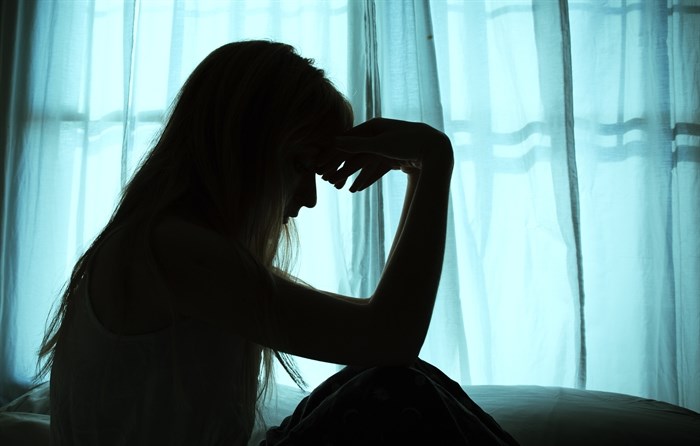
Image Credit: ADOBE STOCK
October 31, 2017 - 6:30 PM
“Twenty minutes of your life or two hours of your life should not have to affect you for the next 40 years of your life.”
That’s the message Kamloops RCMP Victim Services Coordinator Ula Chauvet wants to send to people who were in Las Vegas during the massacre at the Route 91 Harvest Festival.
Last week, Chauvet’s team received a number of calls from family members of people who were at the concert, looking for resources for their loved one. It’s a situation that rarely happens – a massive crime committed against hundreds of people from all over the world.
People from Kamloops, the Shuswap, the Okanagan and all across the province were at the concert. Although Las Vegas likely had its own victim services team deployed to the scene in the aftermath of the worst mass shooting in U.S. modern history, Chauvet says it can be a challenge for Canadians who are trying to access help back at home.
Chauvet says this is a critical time for people who were in Las Vegas during the massacre.
“Now we’re seeing families seeking help for loved ones who were maybe on the fringe, who... heard the shots but didn’t see the actual, I guess gore,” Chauvet says.
People who were at the concert may not notice signs that they need help and people around them should be taking note of how the affected person is acting. Key resources available to anyone affected by the incident are webinars from the National Organization for Victim Assistance.
“If you watch the webinars, it’s going to give you information and knowledge on what that person is going through,” she says. “A better understanding which equals a better forgiveness, maybe, of why they’re behaving the way they are, why they’re not eating three weeks after the incident, why they’re not necessarily sleeping.”
There’s no wrong way to cope with a traumatic incident like this once, Chauvet says, but it’s important to not get stuck in a negative headspace which could eventually lead to post-traumatic stress disorder.
She says there are small signs loved ones should look out for after someone goes through trauma, for example drinking more than usual, sleeping more or less, withdrawing from activities, or a lack of excitement or enthusiasm.
“Family sees it and friends see it long before you see it because you’re thinking ‘I’ll deal with it, I’ve got it’,” Chauvet says. “’I’m not wanting to jump off a building so I’m obviously not depressed, right?’ But depression isn’t about suicide; depression is about where you’re at. It’s not your normal.”
Chauvet recommends counselling for anyone who was at the concert during the shooting in Las Vegas.
There are government resources available for Canadians who were victims of crime abroad, including potential funding for counselling. The federal government’s website states Canadians who have been the victim of a serious violent crime in a foreign country may be eligible for financial assistance through the Victims Fund. The fund can help cover counselling expenses when the victim has no other source of financial assistance.
“(Counsellors) give you the tools to sort of process that,” she says. “If you’re stuck, like you’re really stuck in that incident, or you wake up in the middle of the night and you’re right back there and you can’t get your head space out of it, you need help. There are things that need to be done to get you out of it because that’s where PTSD can start.”
Chauvet says the online webinars help families or loved ones understand what a victim of the shooting may be going through mentally, but also helps victims understand how they’re handling the situation.
“If you are a support person... and you’re watching your loved one going through this, and they don’t want help yet... I would recommend them to get the information,” Chauvet says. “We can’t make them heal. You can’t wave a magic wand and ‘ding’ you are better. I wish we could do that.”
Chauvet says it’s important to not pressure someone who went through this situation by telling them to get over it, snap out of it, or heal faster.
“You’re having a normal reaction to an abnormal event,” she says. “There is no wrong, you react the way you need to react to an abnormal situation, and that’s just what you do.”
Healthy communication and listening to the person affected is key in the healing process, Chauvet says. If you feel your loved one needs help they haven’t yet received, she recommends being open and mentioning it to them without pressuring them.
She says focusing on statements like ‘I’m concerned’ or ‘I care about you’ are important, and letting that person know they have a support system behind them.
“It’s OK to ask for help,” she says. “It is not a sign of weakness, actually it takes a lot of strength to recognize that you can’t do it on your own.”
As for local resources besides counselling, Chauvet recommends seeing your family doctor if you need help, or checking into the Kamloops Mental Health and Substance Abuse clinic located at 235 Lansdowne St.
For more information on the National Organization for Victim Assistance webinars, go here.
For more information on financial assistance for Canadians victimized abroad, go here.
To contact a reporter for this story, email Ashley Legassic or call 250-319-7494 or email the editor. You can also submit photos, videos or news tips to the newsroom and be entered to win a monthly prize draw.
We welcome your comments and opinions on our stories but play nice. We won't censor or delete comments unless they contain off-topic statements or links, unnecessary vulgarity, false facts, spam or obviously fake profiles. If you have any concerns about what you see in comments, email the editor in the link above.
News from © iNFOnews, 2017